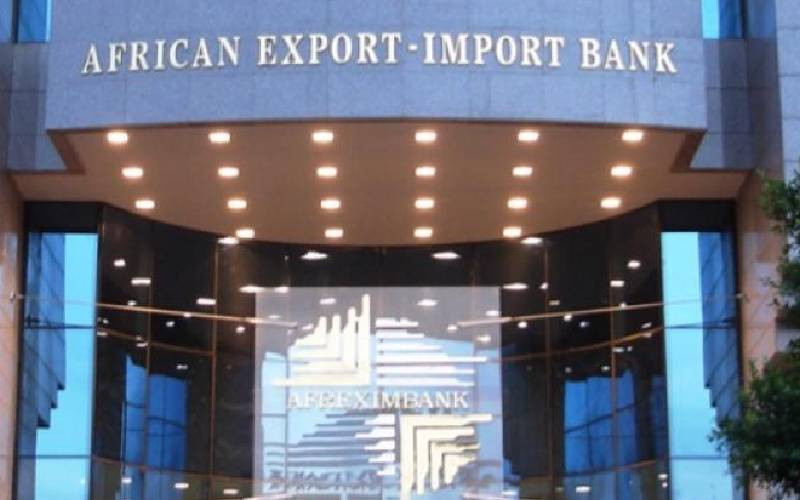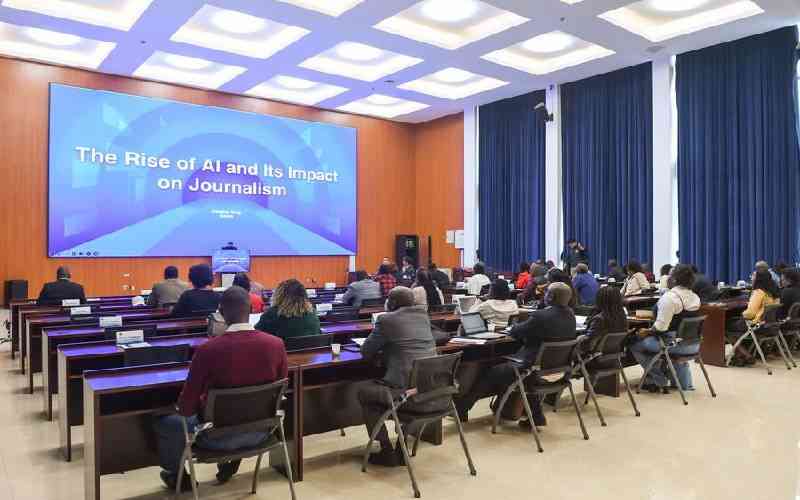
(L-R) James Mbithi CEO of Principal officer Britam general insurance, Melvin Marsh International Founder and CEO Flora Mutahi, Ayusa Ondieki Vice-Chair of the Kenya Association of Manufacturers SME Hub and Patrick Njunge director retail and business banking at HFC, during the launch of Britam Biashara a combined business protection solution on April 15, 2025 at Sarova Stanley Hotel in Nairobi. [Edward Kiplimo, Standard]
When it comes to access to finance, the default argument for small and medium enterprises (SMEs) has always been a lack of collateral. But according to the founder and chief executive of Melvin Marsh International Flora Mutahi, the 30-year-old firm behind the Melvins Tea brand, a majority of SMEs do not even have the necessary structures to absorb such huge finance.
She noted that 80 per cent of the SMEs in sub-Saharan Africa are either unbanked or underfunded. “It’s not because capital is not available but businesses lack the structure to absorb it,” she said. She supports her arguments with instances she has witnessed where SMEs access grants or venture capital, but they never scaled.
“I have seen so many SMEs starting a business, being fortunate enough to get a grant, but they ‘burn’ this money because they don’t have a plan or they don’t have a sustainable business, then they go look for the next one,” she said during Britam Biashara Network, a platform by financial firm Britam that beings together small business owners.
Ms Mutahi said businesses should understand that the money borrowed from banks is someone else’s cash, hence the financial institutions’ need for concrete grounds to extend loans.
“They (banks) are also trying to protect what they have, so you have to present yourself in a manner that they feel comfortable. Explain who you are, what your business is clearly, and have a track record showing where you have reached,” she said.
She noted that studies have shown that over 60 per cent of SMEs who access money prematurely end up misusing it in short-term expenses instead of long-term investments. “It is not about access to capital but readiness,” she said.
Director Retail and Business Banking at HFC Bank Patrick Njunge said unlike the narrative that banks need collateral, financial institutions lend against the ability to pay. He however, noted a mismatch in the financial system between funding and the needs of businesses.
“Sometimes a business needs Sh10 million, and you find it Sh5 million further out, you have created a problem,” he said.
Early-stage financing
He agreed that financial institutions have failed in business, especially in start-ups and early-stage financing. “That is an area we can do better,” he said. “My philosophy is how the world was 30 years ago if people did not say, it can be fine differently, we would not be here today.”
An opportunity however exists on data which a majority of small firms have. If this data can be used as collateral, then SMEs will have a different tale. It is something HFC is working on.
“Data is one of your most important assets. We need to find ways to collateralise data either at a sector level or company level, and that is ongoing work,” he said.
In an alternate universe of SMEs, this is already working out as the Kenya Association of Manufacturers (KAM) SME Hub vice-chair, Ayusa Ondieki, explained. “The beauty is in the current financial gap. You will find that some of the grants are used to scale. Some of these loans are given as revenue-based funding,” he noted.
“That I am not judging you on your collateral but your business model, so how can we make money in that particular business. Those are some of the practical solutions we are looking for.”
Stay informed. Subscribe to our newsletter
Mr Ondieki listed financial access, market access and governance as the three major challenges SMEs face. He said the whole financing is available, collateral requirement has made it a challenge for such businesses to benefit.
Additionally, the crowding out effect courtesy of government borrowing from the domestic market has shrunk the space further for SMEs.
“It is happening before our eyes. A few months ago, the interest rates in the bond market were 18 per cent. Some were arguing that if the rates are at 18 per cent, you do not need to do business. You just sit back, put your money in there because earning even 30 per cent as a manufacturer is quite a toll order,” he said.
The government has insisted on the need for small businesses to formalise to make it easier for banks to extend financing to them.
This is considering that existing data from the Kenya National Bureau of Statistics (KNBS) accounts for 7.4 million small businesses, yet this figure is considered to be just half of the actual enterprises that exist nationally.
The Credit Guarantee Scheme and Hustler Fund are two financing initiatives that the government runs to make SMEs finance ready. The Hustler Fund, formed to help individuals with a bad credit rating, caters more for the micro sector, even as plans are underway to lend more to businesses.
The Credit Guarantee Scheme under the National Treasury is also being transformed into the Kenya Credit Guarantee Company to make it a fit-for-purpose entity and give it autonomy.







